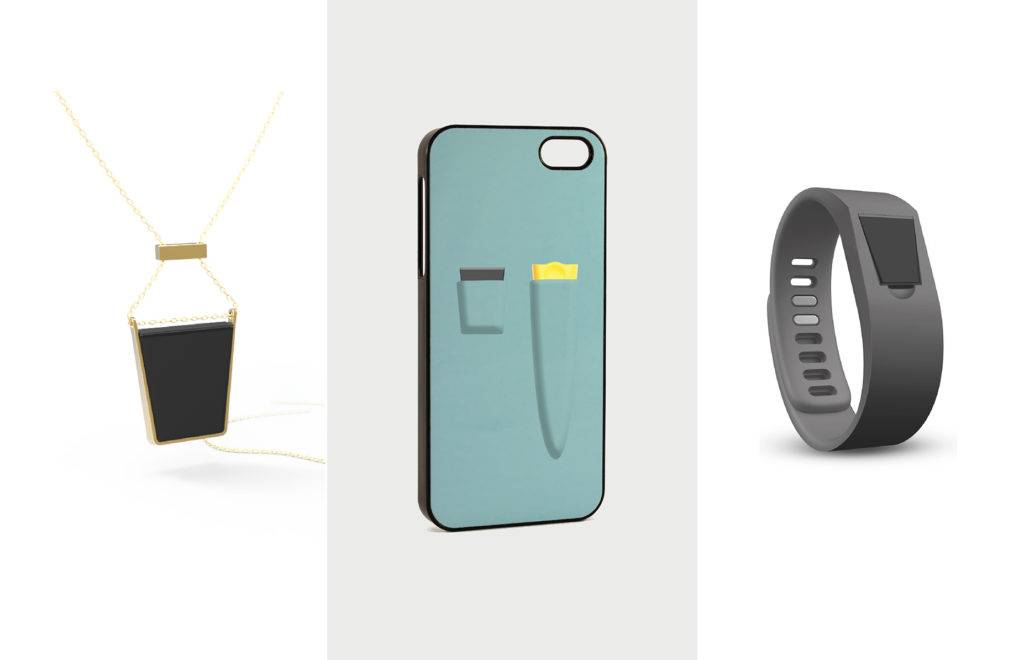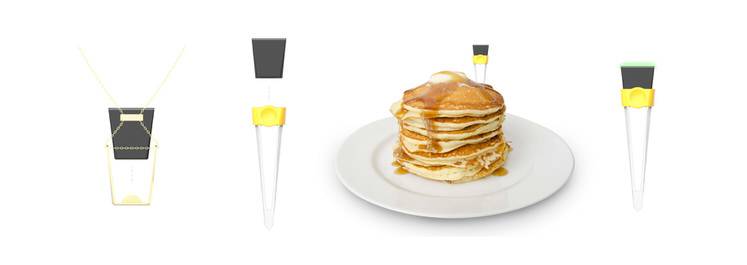Having food allergies can be a real drag. For millions of Americans dealing with food allergies, going to a restaurant or eating at a friend or family member’s house comes with the risk of being unknowingly put in contact with something you are allergic to.
Folks with severe peanut allergies have to be careful not only to order foods without peanuts in them, but to be wary of the fact that in a busy kitchen foods often come in contact with one-another. Many restaurants even post signs letting customers know that certain ingredients are used on site.
So, what is the alternative? You could avoid restaurants and family dinners, or you could carry around an allergen testing kit that tests the food you eat for target proteins that you need to avoid. While these kits can certainly help reduce the cases where accidental exposure to allergens in food resulted in hospital visits, not everyone with a food allergy wants to carry around a portable science lab to test their food.
Allergy Amulet – great answer or liability magnet?
Enter the Allergy Amulet, a small, elegantly designed wearable that looks like jewelry and contains testing strips that enable you to test your food for allergens in seconds. The device, a wearable that can serve as a fashionable amulet when worn around the neck, with a bracelet, or carefully tucked away in a specially-designed smartphone case is used with disposable testing strips that, when inserted into food, can detect the presence of allergen proteins in as little as 1-2 parts per million.
The strips are made with molecularly imprinted polymer that contains the impression of a target allergen protein. These protein molecules can then become trapped in these channels, sort of like a lock-and-key, resulting in a chemical reaction that alerts the Allergy Amulet to the presence of an allergen. The amulet then alerts the user so they can avoid what could be a risky snack.
This device would act as part of an overall strategy for preventing allergen exposure. The user would still need to remain vigilant about what is in their food. What this technology can do is help to reduce the number of accidental exposure that happens from hidden allergens that are present in prepared foods that the diner, waiter, and possibly even the chef are unaware of.
In theory, this is an incredibly useful technology. There is still a lot of work to be done, however.
Currently the technology is being tested with peanut allergens, however plans are in place to create strips that target other problematic ingredients such as egg, gluten, soy, shellfish, and more.
There are also huge legal hurdles to contend with. This is being designed as a potentially life-saving device, and its users will undoubtedly become reliant on it as an additional measure of protection. Accuracy is absolutely critical to the Allergy Amulet’s success.
With over 6 million children estimated to suffer from food allergies in the United States and over 200,000 emergency room visits each year resulting from contact to allergens, devices like the Allergy Amulet could provide much-needed peace of mind.



















